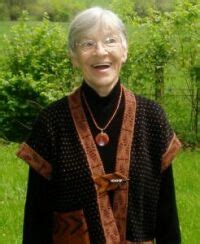A Quote by Josef Pieper
Wonder is defined by Thomas [Aquinas] in the Summa Theologiae [I-II, Q. 32, a. 8], as the desiderium sciendi, the desire for knowledge, active longing to know.
Related Quotes
The whole thing that Dante [Alighieri] did was summed up in the medieval world. It's like St. Thomas Aquinas, the Summa Theologica. He didn't invent it, he just put it all in one package. You get twelve fat books there sitting in any library. Whereas... I think if Joshi thinks [H.P.] Lovecraft was doing anything like that, just throwing together all this stuff to form a kind of anti-mythology, that's where I would disagree with him.
Without the power of intelligence there is no capacity for spiritual knowledge; and without spiritual knowledge we cannot have the faith from which springs that hope whereby we grasp things of the future as though they were present. Without the power of desire there is no longing, and so no love, which is the issue of longing; for the property of desire is to love something. And without the incensive power, intensifying the desire for union with what is loved, there can be no peace, for peace is truly the complete and undisturbed possession of what is desired.
There is a German word, Sehnsucht, which has no English equivalent; it means 'the longing for something'. It has Romantic and mystical connotations; C.S. Lewis defined it as the 'inconsolable longing' in the human heart for 'we know not what'. It seems rather German to be able to specify the unspecifiable. The longing for something - or, in our case, for someone.
Wonder [admiratio astonishment, marvel] is a kind of desire for knowledge. The situation arises when one sees an effect and does not know its cause, or when the cause of the particular effect is one that exceeds his power of understanding. Hence, wonder is a cause of pleasure insofar as there is annexed the hope of attaining understanding of that which one wants to know. ... For desire is especially aroused by the awareness of ignorance, and consequently a man takes the greatest pleasure in those things which he discovers for himself or learns from the ground up.
Thomas Aquinas defined the human soul as the core of our being, and the power that brings our characteristics into unity so the soul of capitalism - in its own temporal world as contrasted to the spiritual world of human beings - is what defines the core of the system and the factors that unify to produce the wonderful world that we are blessed to live in.
Longing is the fullest sense of desire; it's the most deeply felt kind of desire. I think the most interesting artwork comes out of some sense of longing. It could be called dissatisfaction; it could be called distance. There are many kinds of wanting to get closer to something else, whether that is an idea, a body, a place. Longing is also one of the conditions people approach reading, visual art, or music with - it's to satisfy that sense of longing. It's part of my job, on some level, to grapple with that notion.






































